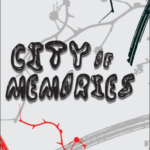Looking back is what breaks the heart
July 6, 2016City of Memories
July 6, 2016
The Anguish and Vigilance of Things by Richard Ali
I
n these poems, Richard Ali presents his life as a patient on a surgeon’s table and there are no, have been no themes, to his life, as these poems reveal. There have been only a series of glances, his eye resting on this or that, his poems becoming points of emphasis, seeking to undress and pare away adjective and lie alike. My son is not naked in these poems. But these poems are a testimony to what is laid naked. He is naked beneath these poems.
„The Anguish and Vigilance of Things is Richard Ali’s long-awaited debut. The collection deals with a range of ideas and issues, playing with form and structure. At the center of them, all is the image of a poet in a penultimate space, at an angle to the stairs of this world in the sense of James Baldwin.”
R
ichard Ali’s language is a mixture of Derek Walcott, like clear water, and Wole Soyinka, with the aura of corrugated zinc roofs. We glimpse the former in lines like “Her scent is a cloned idea of New York,” and “Gay butterflies that dance without care / Smear themselves on windscreens”; and in the latter in lines like “Hunger is an arm stretched across the sea, there’s a distance / Over which words will not keep, including formulae.” In the section The Woman God, the poems depict a woman, or girl, as the deity in relationships and reveals man’s supplicant and reverent role to her. In “Flame Lines,” Richard Ali truly adores a certain woman: “This is our place, womb of our story, occult place, primeval / I’m your sole worshipper, my dhikr is yours, my madness yours.”
Carl Terver, Praxis Magazine






